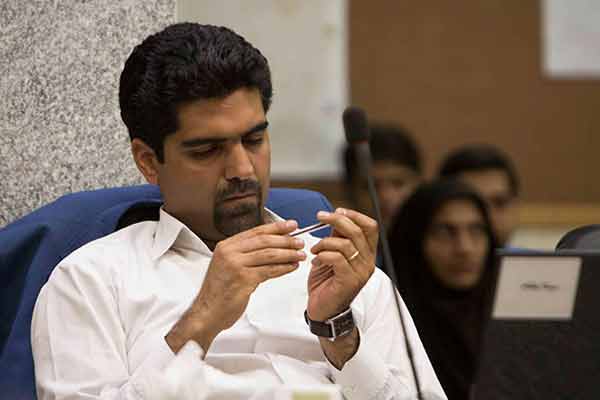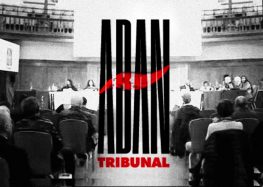Rouhani Calls Suspension of Non-Muslim City Council Member “Really Upsetting”

Sepanta Niknam was suspended from the Yazd City Council for being a member of the Zoroastrian faith.
Suspended Zoroastrian Councilman Calls For Action Over Words
President Hassan Rouhani has expressed hope that the long-running state dispute over the suspension of a Zoroastrian member of the Yazd City Council in southeastern Iran will be resolved by the country’s highest arbitration body.
“It’s really upsetting to see doubts cast on a non-Muslim after he wins the people’s vote in an election and questions are raised regarding whether he could be a member of a council or not,” the Shia Muslim president said in a speech to a group of Sunni Muslim scholars in Tehran on June 2, 2018.
“Of course, Parliament has taken some good steps and we hope that the Expediency Council will make a positive decision in this regard,” he added.
Article 112 of Iran’s Constitution gives the Expediency Council the authority to resolve disputes between the Guardian Council and Parliament when they are deadlocked over an issue.
In September 2017, a few months after he was re-elected to the Yazd City Council with more than 21,000 votes, Sepanta Niknam’s seat was suspended by court order after Ali Asghar Bagheri, a Muslim candidate who did not win a seat in the elections, filed a complaint.
Niknam, 32, is the head of the Zoroastrian Association, which is based in Yazd. Recognized in the Constitution, followers of the Zoroastrian faith in Iran had dwindled to about 25,000 as of 2011, according to the most recent census data.
The southeastern Iranian city of Yazd is home to some of the world’s most revered Zoroastrian religious sites. Followers of the ancient pre-Islamic faith have lived in the region for thousands of years.
In January 2018, after Parliament and its oversight body the Guardian Council failed to reach a compromise over the Guardian Council’s declaration that non-Muslims should be barred from running in Muslim-majority constituencies, the dispute was referred to the Expediency Council.
In a message to the 11th World Zoroastrian Congress in Tehran on June 2, 2018, Rouhani described Zoroastrianism as a “divine religion.”
“The constant presence of the Zoroastrian religion in Iran has had an impact on the followers of divine religions in areas of culture and civilization,” he wrote. “Iranians believe in a single God and the Zoroastrian faith is a divine religion with firm and solid roots along with Islam and other monotheistic religions.”
In response to Rouhani’s message and a similar one by Parliament Speaker Ali Larijani, Niknam responded that he hoped the words would be followed up with action.
“Mr. Rouhani, Mr. Larijani, I felt proud that the president and parliament speaker of my country respect the rights of other religions. I heard your messages to the World Zoroastrian Congress but unfortunately have felt more the actions taken by other authorities regarding the rights of minorities. As the ancient saying goes, hearing is not seeing.”
In September 2017, Branch 45 of the Administrative Court in Yazd suspended Niknam’s membership in the council based on a Guardian Council ruling issued days before Iran’s May 2017 presidential and local council elections.
In a letter on behalf of the Guardian Council on April 18, 2017, its ultra-conservative chairman Ahmad Jannati wrote that religious minorities could not stand as candidates in Muslim-majority constituencies because doing so would contradict the views of the founder of the Islamic Republic, Ayatollah Ruhollah Khomeini, “and is therefore against the tenants of Sharia [Islamic law].”
The Iranian Constitution recognizes Judaism, Christianity, and Zoroastrianism as official minority religions.
Several officials including Parliament Speaker Ali Larijani have opposed the Guardian Council’s position.





